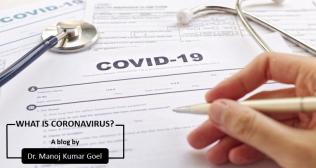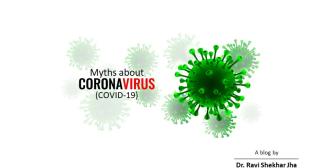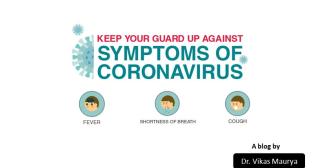
Managing Asthma: Identifying and Addressing Various Types of Asthma
Introduction
When an individual usually breathes, muscles around the airways relax, letting air move quickly and quietly. During an asthma attack, three events occur:
- Bronchospasm: The muscles around the airways tighten. When they constrict, it makes airways narrow. Air cannot travel freely through constricted airways.
- Inflammation: The airway lining becomes swollen. Swollen airways don’t allow as much air in or out of the lungs.
- Production of Mucus: During the attack, the body produces more mucus. This thick mucus blocks airways. When airways become tighter, an individual makes a sound known as wheezing when they breathe, a noise the airway produces when an individual breathes out. One might have also heard about an asthma attack referred to as an exacerbation or a flare-up. It’s a term used for when asthma isn’t controlled.
As with many long-term (chronic) conditions, asthma develops differently in everyone.
About Asthma Severity Levels
What do you understand by severity? In simple words, the severity of asthma can be defined as the intensity of asthma. It can also be looked at as the minimum amount of treatment required to maintain control. Different levels are analyzed by the frequency and severity of symptoms and the results of lung function tests, such as spirometry and a peak flow meter test.
The 2020 National Asthma Education and Prevention Program (NAEPP) guidelines take into consideration the severity of asthma classification, with characteristics of asthma severity divided into:
Mild Intermittent Asthma
- Intermittent means that the manifestations of asthma do not occur consistently, and an individual can go through long periods without any manifestations.
- Several asthma patients fall into this category.
- Includes wheezing once or twice in seven days. Patients suffering from mild intermittent asthma rarely wake up at night. This type of asthma needs a minimal amount of medicine and is typically easy to control. It can occur during a variety of seasons of the year, with physical activity and cold air exposure, or with upper respiratory infections.
Mild Persistent Asthma
- Coughing, wheezing, and tightness of chest 3 to 6 times in 7 days.
- Patients may get up at night coughing or having trouble breathing a few times in 30 days.
- On a daily basis, the peak flow meter (an at-home device to estimate lung function) will fall by more than 20 percent.
- The majority of patients suffering from mild persistent asthma require a low dose of asthma medicines every day to keep their asthma at bay.
Moderate Persistent Asthma
- Patients reveal daily symptoms of coughing, wheezing, and tightness of the chest.
- The asthma symptoms cause nighttime awakening more than five times in 30 days.
- The readings of the peak flow meter are in the range of 60–80%. Patients suffering from moderate disease will require medications on a daily basis for their asthma.
Severe Persistent Asthma
- About 10% of asthma patients fall into this group.
- These patients experience continual symptoms of coughing, wheezing, shortness of breath, and chest tightness.
- Patients report getting up regularly at nighttime because of asthma.
- The peak flow meter reading is generally less than 60%.
- Patients with serious asthma bear the burden of the disease more than any other group.
- These patients need to take multiple medicines daily but still exhibit the symptoms.
- Individual still suffers from severe asthma after taking multiple medicines to maintain asthma control.
Asthma can be classified based on the trigger:
- Allergic: Some individual’s allergies can cause an asthma attack. Allergens comprise entities such as molds, pollens, and pet dander.
- Non-Allergic: Extrinsic factors can cause asthma to flare up. Physical activity, stress, ailments/illness, and weather may cause a flare.
Asthma can also be divided based on the age of onset:
- Adult-Onset: This type of asthma develops in individuals over 18 years old.
- Pediatric: Also known as childhood asthma, this type of asthma often develops before the age of 5 and can occur in infants as well as toddlers. Children may outgrow asthma. Parents should ensure that they discuss it with their healthcare professional before they decide whether the child requires to have an inhaler available in case they have an asthma attack. The child’s healthcare professional can help understand the risks.
Furthermore, there are these asthma types:
- Exercise-Induced Asthma: If an individual experiences asthma symptoms during exercise or physical activity, they may suffer from exercise-induced bronchoconstriction.
- Occupational Asthma: This type of asthma occurs primarily in individuals who work around irritating substances.
- Asthma-COPD Overlap Syndrome (ACOS): This type of asthma occurs when an individual has both asthma and chronic obstructive pulmonary disease (COPD). Both diseases make it tough to breathe.
Treatment Options
Healthcare professionals may prescribe various kinds of medicines to control symptoms. These comprise:
Bronchodilators:
These medicines relax the muscles surrounding the airways. The relaxed muscles allow the airways to move air more freely. They also enable mucus to move more quickly through the airways. These medicines relieve symptoms when they occur and are utilized for intermittent and chronic asthma.
Anti-Inflammatory Medicines:
These medicines decrease swelling and production of mucus in the airways. They make air entering and moving out of the lungs easier. Healthcare professionals may prescribe them to take them on a daily basis to control or prevent symptoms of long-lasting asthma.
Biologic Modalities (Therapies) for Asthma:
These are utilized for severe asthma when symptoms persist in spite of proper inhaler therapy.
Individuals can take asthma medicines in several different ways. They may breathe in the medicines utilizing a metered-dose inhaler, nebulizer, or alternative type of asthma inhaler. Healthcare professionals may prescribe oral medicines that an individual swallows. In case of recurring symptoms, immediate medical attention is required.
Popular Searches :
Hospitals: Cancer Hospital in Delhi | Best Heart Hospital in Delhi | Hospital in Amritsar | Hospital in Ludhiana | Hospitals in Mohali | Hospital in Faridabad | Hospitals in Gurgaon | Best Hospital in Jaipur | Hospitals in Greater Noida | Hospitals in Noida | Best Kidney Hospital in Kolkata | Best Hospital in Kolkata | Hospitals in Rajajinagar Bangalore | Hospitals in Richmond Road Bangalore | Hospitals in Nagarbhavi Bangalore | Hospital in Kalyan West | Hospitals in Mulund | Best Hospital in India | Gastroenterologist in Jaipur | Cardiology Hospital in India
Doctors: Dr. Rana Patir | Dr. Rajesh Benny | Dr. Rahul Bhargava | Dr. Jayant Arora | Dr. Anoop Misra | Dr. Manu Tiwari | Dr. Praveer Agarwal | Dr. Arup Ratan Dutta | Dr. Meenakshi Ahuja | Dr. Anoop Jhurani | Dr. Shivaji Basu | Dr. Subhash Jangid | Dr. Atul Mathur | Dr. Gurinder Bedi | Dr. Monika Wadhawan | Dr. Debasis Datta | Dr. Shrinivas Narayan | Dr. Praveen Gupta | Dr. Nitin Jha | Dr. Raghu Nagaraj | Dr. Ashok Seth | Dr. Sandeep Vaishya | Dr. Atul Mishra | Dr. Z S Meharwal | Dr. Ajay Bhalla | Dr. Atul Kumar Mittal | Dr. Arvind Kumar Khurana | Dr. Narayan Hulse | Dr. Samir Parikh | Dr. Amit Javed | Dr. Narayan Banerjee | Dr. Bimlesh Dhar Pandey | Dr. Arghya Chattopadhyay | Dr. G.R. Vijay Kumar | Dr Ashok Gupta | Dr. Gourdas Choudhuri | Dr. Sushrut Singh | Dr. N.C. Krishnamani | Dr. Atampreet Singh | Dr. Vivek Jawali | Dr. Sanjeev Gulati | Dr. Amite Pankaj Aggarwal | Dr. Ajay Kaul | Dr. Sunita Varma | Dr. Manoj Kumar Goel | Dr. R Muralidharan | Dr. Sushmita Roychowdhury | Dr. T.S. MAHANT | Dr. UDIPTA RAY | Dr. Aparna Jaswal | Dr. Ravul Jindal | Dr. Savyasachi Saxena | Dr. Ajay Kumar Kriplani | Dr. Nitesh Rohatgi | Dr. Anupam Jindal |
Specialities: Heart Lung Transplant | Orthopedic | Cardiology Interventional | Obstetrics & Gynaecology | Onco Radiation | Neurosurgery |



















